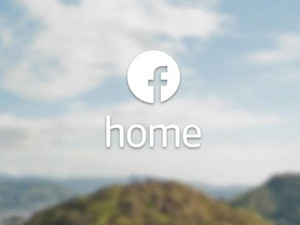
Since launching on 16 April, Facebook's home screen Android sleeve reached only 500 000 downloads in five days. The figure was revealed in a tweet by Benedict Evans, of Enders Analysis.
On Google Play, the app received a poor rating of 2.2, with most people expressing their disappointment and leaving comments like "I downloaded the app, and within 10 minutes of downloading, I uninstalled. Was not impressed by this app at all" and "if you want to access your Facebook then just open the app instead... uninstalling after 2 minutes."
Putting the figure into further perspective, it has to be considered that Facebook has over a billion users. Angry Birds Space, for instance, was downloaded around 10 million times within the first three days it was released and within the next week, 20 million players downloaded the game.
But Mike Sharman, owner of digital communications agency Retroviral, says it's not a dismal figure and that it's still too soon to judge. "We can't be cynical about the success or failure of Facebook Home at this early stage. Half-a-million opt-ins to download a new feature of Facebook is no small feat. Are there even 500 000 people who proactively adopted Google Plus?"
He adds that the key to Facebook's success is its ability to innovate. "The Facebook-Google rivalry is heating up. I'm surprised that Android is allowing this app to exist, because the more time people spend in the Facebook environment, the less time they are spending on Google being exposed to adwords, GDN tactics, etc."
Restrictions
What further hampers the Facebook Home app's growth is the fact that it can only be downloaded onto select devices, including the Samsung Galaxy S3, Galaxy Note I2, HTC One X, and the HTC One X+, along with the Facebook Phone, the HTC First.
Commenting on the selection of devices that are compatible with Facebook Home, Evans says it's just a drop in the bucket. "These devices together have sold perhaps 60-70m units (we know 40m GS3s a month or two ago but the rest is pretty speculative), out of a total of around 680m Androids in the last two years. The GS4 will presumably be supported too, of course."
He predicts the Facebook Phone, the HTC First, will not catch on. "Sadly, given HTC's current position, I don't expect this to change the trajectory of anything." He does, however, expect Home to expand to cover most or all devices running Android 4 or later in the next six months or so, if not sooner.
Facebook Home is also not available for the iPhone, and according to Evans, it will almost certainly never be as Apple would not permit such a take-over of the interface.
Meanwhile, Facebook is seeking to implement elements of Home into all of its mobile products. In the latest update from Facebook, it has included the Chat Heads messaging feature in the iPhone app
The instant messaging feature allows users to keep chatting when doing other tasks on Facebook, like checking the News Feed. Users tap Chat Heads to reply, drag them around, or flick them down to close.
Early criticism
When Facebook CEO Mark Zuckerberg announced the release of Facebook Home earlier this month, pundits had serious concerns that the Android sleeve would not be a success.
Calling Facebook Home the "faux-OS", GigaOM founder Om Malik questioned the social network's policies on privacy. "Facebook's history as a repeat offender on privacy, and playing loose and easy with our data means it needs to be even more vigilant about privacy issues, thanks to this Home app/faux-OS."
Malik also said the increased marketing to users will not count in Facebook Home's favour. "However, the problem is that Facebook is going to use all this data not to improve our lives, but to target better marketing and advertising messages at us. Zuckerberg made no bones about the fact that Facebook will be pushing ads on Home."
Apple and tech commentator John Gruber has also taken a swing at Facebook Home on his Daring Fireball blog, saying it's a "nicely-designed phone interface that I would personally never want to use".
Gruber also has some harsh words about the Facebook Home messaging app. "I suddenly wonder why the iPhone Messages app doesn't use avatars. Or, perhaps the better question: why don't iMessage accounts have avatars?"
Home soil
When Facebook Home was announced, World Wide Worx MD Arthur Goldstuck said he didn't expect Facebook Home to catch on locally. "Facebook Home is targeted at the Android trade market and in South Africa we are not quite there yet."
Goldstuck added that locally, Samsung holds the biggest market share when it comes to Android operating systems and puts a lot of effort into its smartphones. "They would not want to dilute their smartphone experience with something that overrides their Android system."
Share